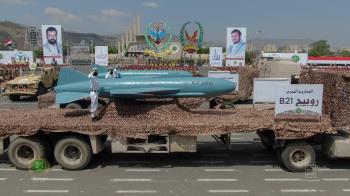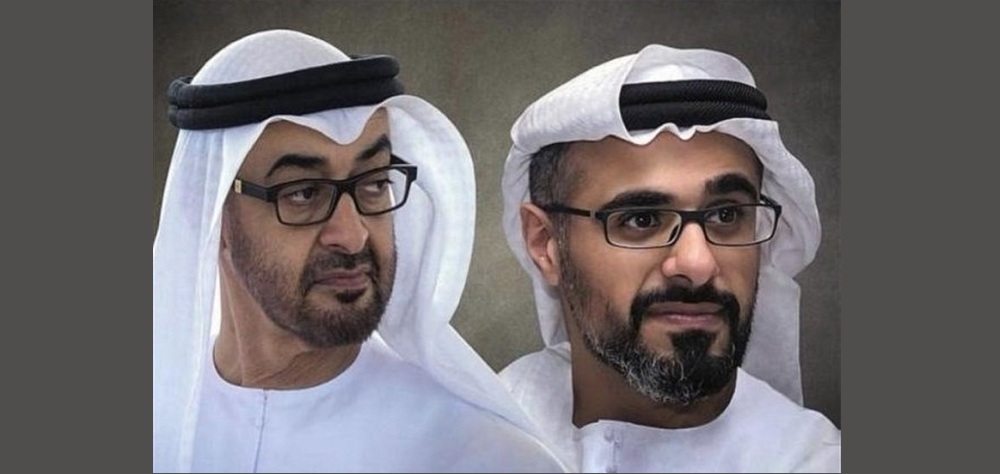Alwaght- Mohammed bin Zayed who took the office as President of the UAE in May 2022 needs young and submissive leaders to advance his plans for the future he designed for the new Emirates. He has shown that unlike his predecessors, he is a pragmatic person, and that is why some call him the architect of the new Middle East, and therefore he is trying to arrange the composition of political leaders in his country to avoid possible disruptions to his ambitious plans. To this end, the ruler of the UAE appointed his son Khalid as the crown prince of Abu Dhabi on Wednesday.
Sheikh Mohammed also named his brothers Tahnoun and Hazza as deputies to Khalid and his other brother Mansour along with Mohammmed bin Rashed Al Maktoum as his own deputies. Tahnoun currently serves as the national security advisor and Hazza the deputy chairman of Abu Dhabi Executive Council.
These appointments are the most important political appointments under Mohammed’s presidency. The president of the Emirates also ordered the reconstitution of the Abu Dhabi Executive Council headed by the crown prince of Abu Dhabi. Reports suggest that the new decrees were approved by the Federal Supreme Council of the country.
Since Sheikh Mohammed assumed the power as UAE president, there were many speculations about Khaled being appointed crown prince and he finally took the post, beating other options.
Who is the new crown prince?
Khaled bin Mohammed bin Zayed, born in 1982, is the oldest son of the president of the UAE, and like many other Emirati officials, he graduated from Britain’s Royal Military Academy Sandhurst and was recruited by the National Security and since 2016, headed the body which equals a ministry. He also has been deputy head of Supreme National Security Council, a post equaling a ministry post.
Prince Khaled also became a member of the Abu Dhabi Executive Council in January 2019. He is also a member of the board of directors of Abu Dhabi Investment Authority and Abu Dhabi National Oil Company (ADNOC). The record of his activities shows special attention to youth and economic activities. The new crown prince of Abu Dhabi was also in charge of the special UAE’s relief mission for Turkey and Syria earthquake.
Khaled has no major political posts in his record but thanks to his princeship, he secured such a sensitive post. In the past few years, Khalid appeared on the media and political circles with his grown white beard to show that he has enough political maturity to be able to overcome his rivals for the post of crown prince and future leadership.
Emirates is a union country comprised of seven emirates of Abu Dhabi, Dubai, Sharjah, Ajman, Umm Al Quawain, Ras Al Khaimah, and Fujairah, with each emirate ruled by a royal family hereditarily. The most important emirates are Abu Dhabi and Dubai, ruled respectively by Nahyan and Maktoum families. Traditionally, the head of Abu Dhabi is picked the president of the Emirates and head of Dubai is the prime minister. Of course, according to the law, the selection of heads to these two positions is the responsibility of the Federal Supreme Council which consists of the heads of these seven emirates, and each of them has equal voting rights on paper.
Election of the crown prince has no specific legal mechanism and is a function of the will of the UAE ruler. During his time as the crown prince of Abu Dhabi, Mohammed bin Zayed was in tensions with rulers of other emirates due to his ambitious policies in the region, especially Mohammed bin Rashed Al Maktoum, the ruler of Dubai, with whom bin Zayed has a long-standing feud. Because of its growth thanks to its economy and tourism, Dubai is a serous rival to Abu Dhabi and has always tried to embark on an independent policy, something heightening their tensions.
In recent years, Al Maktoum has regarded itself on par with the Al Nahyan and thus relatively not obeying the central government. Since the beginning of the war on Yemen, in which the UAE is one of the main actors, the tensions between the rulers of Dubai and Bin Zayed has increased due to the successive failures of the Emirati war mercenaries as Dubai paid most of the costs of the war and this pushed the tensions between the two sides to the extent of explosion. If Mohammed Al Maktoum had been picked to the crown prince post, he would have posed a threat to bin Zayed’a throne. Aware of this reality, the UAE president sought to distance influential and powerful figures from Abu Dhabi and curtail the power of other royals with Khaled selection.
Making rule hereditary for Zayed family
That bin Zayed procrastinated naming the crown prince is indicative of the fact that since the beginning, he secured the post for his son and the procrastination was aimed at giving Khaled further chance of showing off his power and authority for the post. The appointment of Khaled in this post reveals a growing will most of the Persian Gulf Arab rulers have to allow their sons, not their brothers, to succeed them in a vertical succession model, which was earlier inaugurated in Saudi Arabia in departure from horizontal model in which power was passed to brothers. In the Persian Gulf, power can be passed down through brothers, cousins, and sons. Bin Zayed, who, like Bin Salman, dreams of strengthening the UAE and implementing fundamental reforms in the ruling structures of this country, abandoned the tradition of his fathers to elect the crown prince from among brothers and is trying to inherit power in his family and take the credit for realizing the dream of building modern Emirates.
The experience of the power transition in the Persian Gulf countries has shown that heated intra-family tensions and competitions have always been an inseparable part of the succession. Khalid was also prepared for leadership by being a member of the powerful Abu Dhabi Executive Council and the crucial National Security since 2016, and Mohammad bin Zayed had planned for this day for years. In Saudi Arabia, under the rule of Bin Salman, all the rebel princes were marginalized, and now Bin Zayed is implementing this policy in the UAE and is trying to reign in all the movements of the rulers of other emirates with the help of his son.
The existence of multiple claimants of monarch and crown prince posts in the Persian Gulf Arab monarchies has been destabilizing the ruling pillars of the ruling families over the past decade and now the new generation of leaders is trying to protect their rule from political frictions and competitions by making it hereditary. Saudi Arabia and the UAE are forerunners in this issue, but this will further authoritarianize the rule in these countries.



























